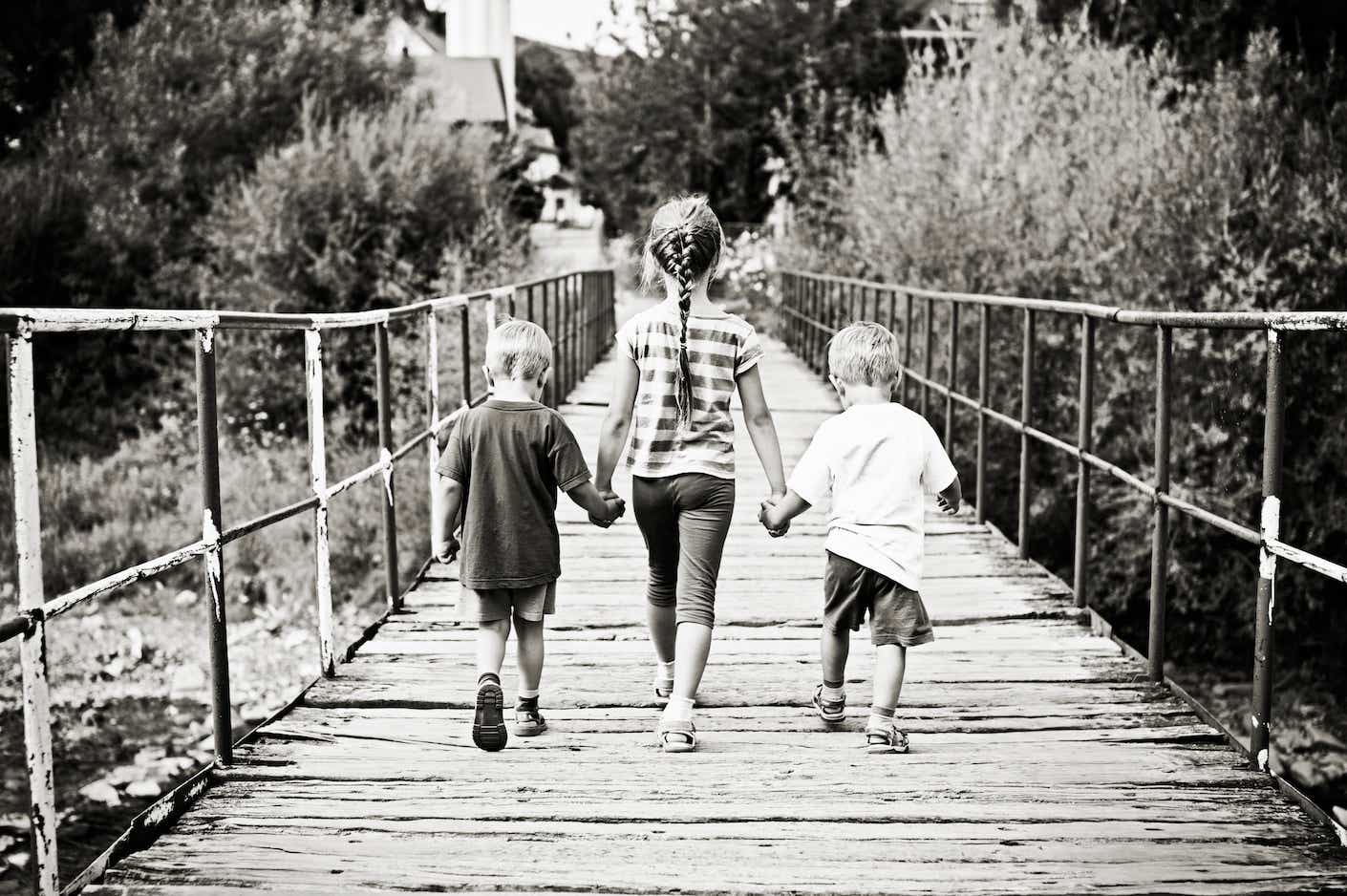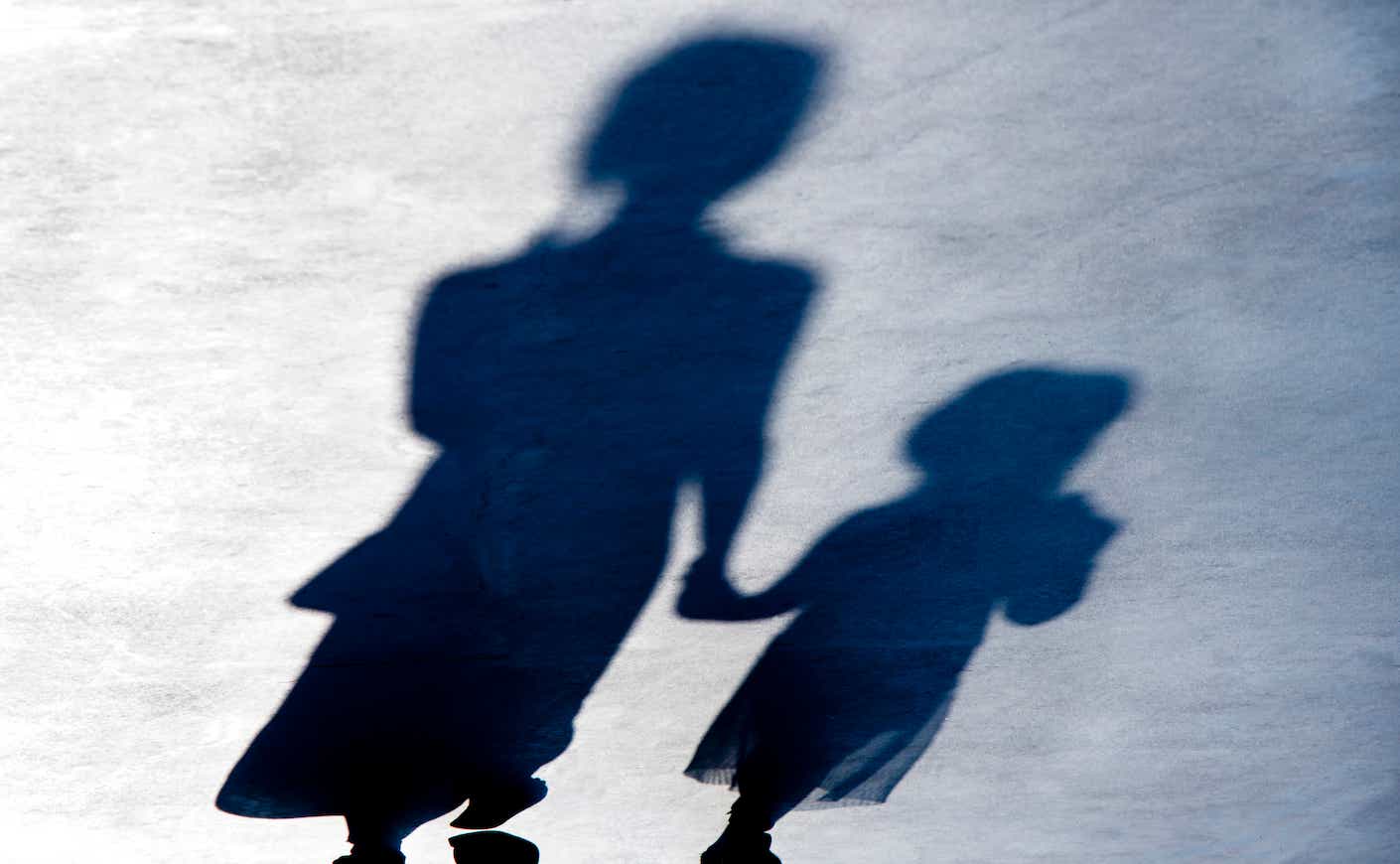If you’re a Twitter addict, you may have noticed a very bitter conversation simmering for the past few months. Yes, there are a lot of bitter conversations on Twitter, but this one has been circulating among adult women who all have one thing in common: They’re the eldest daughters in their families, and have paid what they feel is an unfair price.
“Eldest daughters really are just therapists and marriage counselors for their parents,” one tweet reads, while another user states, “being an eldest daughter is like an unpaid internship for the rest of your life.” Harsh words, sure, but the anger is justified: The Internet is ablaze with eldest daughters expressing resentment for shouldering too much responsibility for their family’s wellness at early ages.
If you’re the oldest, these hurt feelings may resonate with you. And if you’re a younger sibling who was partially (or even fully) parented by an older sibling, you may be discovering that the arrangement was unfair or unhealthy. If you’re a parent, you may be rethinking your current — or past — reliance on your firstborn.
What is "Eldest Daughter Syndrome"?
It's only a recently uncovered dynamic, but Dara Winley, Ph.D., LFMT, a family and couples therapist, writes that “eldest daughters experience the most pressure as their parents are trying to figure out parenting through trial and error for the first time.”
Many eldest daughters are subjected to a form of parentification, which Healthline defines as a type of dysfunction wherein kids take on traditional parenting roles in the household: “Instead of giving to their child, the parent takes from them. In this role reversal, the parent may delegate duties to the child. At other times, the child voluntarily takes them on.” Healthline clarifies that in some cases, children take on logistical duties (like paying bills or weekly grocery shopping) and emotional responsibilities, like caring for their parents’ mental health.
The eldest daughter phenomenon specifically describes a family dynamic in which parents place these adult tasks on the shoulders of their eldest, female child. According to Healthline, this can happen for a huge variety of reasons: Parents may have ill health, substance-use disorders, financial hardship, or a long history of abuse that affects their ability to care for the family. Parentification may also happen if one parent dies, or if parents are immigrants and need help navigating an unfamiliar culture. Basically, parents feel deeply overwhelmed and lean on their children for help.
Why do daughters often bear the brunt and not sons? Ellen Bradley-Windell, LCSW, the co-founder and clinical director of the Valencia Relationship Institute, explains, “Girls, as opposed to boys who have the eldest role, are often expected to be more responsible, and care for their other siblings, emulating the role of their mother.” Meaning that if a mother takes on a traditional role in the family — caring for and running the household — the eldest daughter might mimic some of those behaviors.
Gail Gross Ph.D., Ed.D., the author of How to Build Your Baby's Brain: A Parent's Guide to Using New Gene Science to Raise a Smart, Secure, and Successful Child adds that parents placing too many burdens on their eldest can result in an unfortunate feedback loop — especially when parents want their eldest daughter to assume consistent responsibility for younger siblings. After a daughter fulfills these tasks, an appreciative parent may reward their eldest daughter with affirmation. Receiving positive reinforcement, the child may continue to seek out those responsibilities. If the parent gives into that impulse, ”the child loses her childhood.”
How to heal from the eldest-daughter effect
Becoming too responsible at a young age can have long-term ramifications. Dr. Gross says that women who took on their parents’ struggles are likely to ignore their own emotions: “By parenting her parents, and taking over some of their responsibilities, the oldest daughter, in a sense, is suppressing her own feelings, wants, and needs,” she explains. “She loses the capacity to not only recognize how she feels, but also to speak her feelings. As the oldest daughter enters adulthood, she may experience sadness and depression without identifying a reason for either. This state can lead to post-traumatic stress disorder, as well as personality disorders and free-floating anxiety.”
Untangling complicated family dynamics can be overwhelming (to say the least), but Bradley-Windell points out that narrative therapy can help eldest daughters make sense of their experiences. “See the situation from an adult perspective,” she says. “Know that you didn’t do anything wrong. All you knew was that you were being compliant and doing what was expected of you.”
Bradley-Windell also suggests focusing on forgiveness — a child who was parentified can take steps to forgive their parents, but also take steps to forgive themself. She suggests “literally talking to your younger self and saying something like, ‘I’m sorry you had to be put in that role when you didn’t know better.’ Forgive the little girl who felt so alone because she couldn’t do things her friends were doing and wasn’t able to just be a kid.”
Bradley-Windell says that acknowledging some of the positive results of this situation can help, too. To focus on the good, she recommends an affirmation like, “My independence and ability to navigate adulthood stems from how independent I needed to be as a child, which has helped me throughout my life.”

Dr. Gross says that therapy is key to resolving childhood issues, but that an overburdened eldest daughter might have trouble asking for help in the first place: “Once you’ve experienced parentification, you might find it difficult to trust those in a parental role, such as a therapist.” She suggests combatting that aversion by carefully, repeatedly rehearsing a request for support so that “you can strengthen your resolve to step out of your comfort zone and seek help.”
She also points out that if you don’t feel comfortable with one-on-one therapy, “group therapy and support groups offer a very good beginning to a lifetime of self-discovery.”
How to prevent yourself from perpetuating this pattern?
Unfortunately, we often unconsciously repeat dysfunctional family dynamics — it’s one of the most annoying parts of being human, and a deeply hard habit to break. If you’re a parent, you may find yourself heaping responsibility upon your eldest daughter without realizing it.
If you’ve been an overly responsible oldest daughter or were partly raised by an overburdened older sister, you can break that cycle with your own children.
Bradley-Windell recommends generally approaching parenting with mindfulness. Take the time to question your instincts: “As soon as you start to react or respond instinctually, take a pause to reflect on what this experience was like for you, and how you’ll prevent anything negative from repeating itself. What would you have wanted your mom to do differently?”
Dr. Gross adds that as a basic rule, you can prevent perpetuating this dynamic by steadfastly sticking to your role as a parent: “Don’t ever change roles with your child.” That means giving your oldest kid space to be themselves instead of turning into a mini-you: “Avoid making the oldest daughter responsible for her younger brother and sisters. Allow and encourage your oldest child to be a child without the burden of parental duties.”
Of course, acting mindfully can be easier in theory than in practice. Rewiring your perception of family, parenting, and childhood won’t happen overnight, so Bradley-Windell suggests seeking community online when you’re feeling overwhelmed. “Resources like The Common Parent from Cat & Nat is a great place to start — you can search by specific topics and themes where experts have provided valuable insights and education on very specific issues.” Naturally, she also reminds us that you can’t go wrong with an expert, outside perspective. “Seek out professional help to better explore the norms you may be less familiar with, and to help you manage what to expect of your own kids during their various developmental stages.”
If you’ve already raised an eldest daughter, we’re definitely not implying that you necessarily overburdened her. However, if some of the patterns and signs in this article make you uncomfortable, consider that you may have reversed roles at times. And if your daughter has explicitly stated or implied that she raised her siblings, took care of you or another parent, or kept the family running, then she’s made herself pretty darn clear.
While it may be tempting to offer a simple “I’m sorry,” both of our experts say that a true apology can’t happen unless you take steps to rethink your behavior. Bradley-Windell says that a solely verbal apology can do more harm than good: “Apologizing may actually put them back into the parental role, because while you’re taking responsibility for your actions, you’re not necessarily being solution-minded.”
Dr. Gross points out that an effective apology will come from within — and present itself in the way you treat your child from now on. “Actions speak louder than words. By changing your behavior toward your oldest daughter and encouraging her to only be responsible for herself, you lift the heavy duty of parenting from her shoulders.”
You might even need to reevaluate what types of dialogue you have with your child. Dr. Gross says to take the focus off yourself: “Don’t defend, don’t make excuses, don’t beat yourself up.” These behaviors will deflect or shut down your child’s emotions.
And if you’re still unsure how to ask your child what your parenting might have lacked, Dr. Gross recommends a line that can cut to the heart of the issue: “Tell me what you need from me.”













